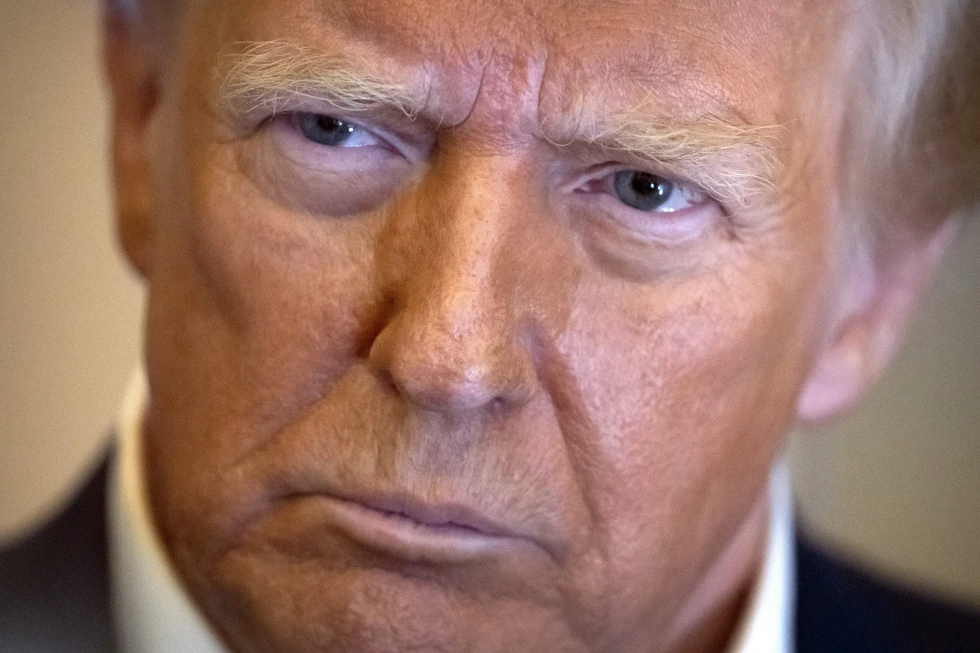The temporary head of the top federal agency responsible for protecting workers’ rights has shown signs of supporting President Donald Trump’s efforts to stop diversity, equity, and inclusion (DEI) programs in both private companies and government offices.
Andrea Lucas, who is currently leading the Equal Employment Opportunity Commission (EEOC), has made moves that have won her strong support from the Trump administration.
Trump has been working to shut down DEI programs through executive orders that removed such efforts from government agencies and warned federal contractors that they could face investigations and large fines for taking part in DEI activities he considers “illegal.” Trump recently chose Lucas, who has often spoken against DEI and believes it leads to unfair job advantages, to serve another five years as a commissioner.
However, past Democratic leaders at the EEOC and major civil rights groups have accused Lucas of overstepping her authority. They have warned businesses to be cautious about following her guidance and have even suggested some should ignore it entirely.
A recent controversy centers around two guidance documents from the EEOC and the Department of Justice. These papers aim to explain what might count as “DEI-related Discrimination at Work” and how workers can file complaints about it.
The documents broadly criticize activities like employee training sessions, special interest groups, and fellowship programs. They warn that these efforts — depending on how they are designed — could break Title VII of the Civil Rights Act, which bans job discrimination based on race and gender.
These documents came after Lucas sent letters to 20 major law firms asking for information about their diversity fellowships and other DEI efforts, which she said might be breaking the law.

In response, ten former Democratic commissioners and lawyers released their own letter Thursday. They told the legal community that the new documents wrongly suggest that common DEI efforts are legally dangerous. They dismissed the documents as just Lucas’s personal views and provided alternate advice for how employers can continue the training and programs that are promoted by official EEOC policy to help stop discrimination.
Last month, seven of those same former EEOC officials sent a letter to Lucas accusing her of acting outside her authority. They said her requests for information from the law firms should have followed a formal investigation process. Several civil rights groups went further, sending their own letter telling the law firms to ignore Lucas because they are not legally required to respond.
“This isn’t how the EEOC works. No single commissioner — not even the Chair — can send threatening letters asking for private employer information,” said Noreen Farrell, head of Equal Rights Advocates, one of the civil rights groups involved. “The EEOC Chair can’t just change decades of civil rights law with a quickly written memo.”
Jenny Yang, a former EEOC commissioner under President Barack Obama, said the letters Lucas sent to the 20 law firms are unlike anything seen before at the EEOC. The agency usually begins investigations after workers file complaints. In very rare cases, a commissioner can start their own case against a company, but it would not be made public and would require solid proof under oath, Yang explained.
Law firms, including some of the 20 Lucas contacted, are already facing pressure to change how they handle DEI. This is partly due to Trump’s executive orders punishing firms that support his political opponents or take part in DEI efforts that he opposes. For instance, Skadden, Arps, Slate, Meagher & Flom learned that Trump planned to target them because of their pro bono work and DEI activities. The firm has since agreed to look into its hiring process and make some changes.
The 20 law firms Lucas contacted did not answer questions from The Associated Press about whether they will respond to her letters. Lucas did not answer questions about the DEI guidance papers, and the EEOC would not say whether the firms must respond or whether they could be penalized for refusing.
Lucas, who was first appointed to the EEOC in 2020 by Republicans, says she is not changing civil rights laws. She claims she is simply warning that many companies are using DEI efforts in ways that cross legal lines. Lucas believes the EEOC has ignored questionable practices, especially those that increased after the 2020 protests over the killing of George Floyd by police.
“Far too many employers defend certain types of race or sex preferences as good, provided they are motivated by business interests in ‘diversity, equity, or inclusion,’” Lucas said in a statement when the new guidance was released.
Many companies are likely to pay attention to Lucas’s warnings now that the EEOC is making it clear it may support workers who say they were treated unfairly because of DEI programs.
Anuradha Hebbar, president of CEO Action for Inclusion & Diversity, a part of the well-known Society for Human Resource Management, said the EEOC is telling companies to avoid programs like fellowships and internships that are limited to women or certain racial groups.

Stefan Padfield of the conservative National Center for Public Policy Research praised the EEOC’s shift, saying it is a necessary change that will lead to more complaints about DEI programs that he believes break the law.
Lucas admits she cannot change some of the agency’s policies on her own, especially those that conflict with Trump’s executive orders. However, the EEOC has already dropped seven lawsuits that accused employers of discriminating against transgender and nonbinary people, after Trump issued an order saying the government would only recognize male and female genders.
Altering major policies — such as the EEOC’s five-year plan that promises support for DEI — would need a majority vote from the agency’s five commissioners. But Trump recently fired two of the commissioners — both Democrats — before their terms were over, breaking 60 years of tradition at an agency meant to be independent and bipartisan.
In their letter Thursday, the former EEOC officials accused Lucas of picking rare examples of discrimination to make it seem like training and DEI efforts are usually legally risky, when most of them are not.
“Our federal civil rights offices and officials should not be intimidating or discouraging employers who are working to advance these goals,” their letter said.


